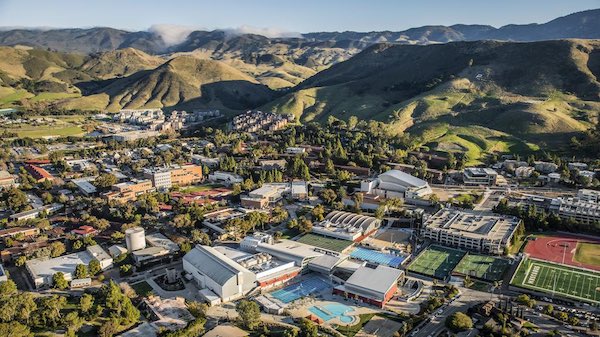Cal Poly funds 14 faculty research projects
Program received 70 proposals requesting a total of $1.1 million
–Cal Poly’s division of Research, Economic Development & Graduate Education (R-EDGE) announced the awards for the 2021-22 cycle of the Research, Scholarly and Creative Activities (RSCA) grant program.
Supported by funds from the CSU Chancellor’s Office and the Cal Poly Provost’s Office, the RSCA faculty grant program is “designed to enable faculty to contribute new knowledge through robust programs of scholarship focused on strengthening California socially, culturally, and economically.” The RSCA Program is one mechanism by which Cal Poly supports the teacher-scholar model, in which faculty integrate excellence in teaching with excellence in research, scholarly and creative activities.
R-EDGE received 70 proposals requesting a total of $1.1 million. Funds were awarded to 14 projects, using the criteria outlined in the RSCA Request for Proposals and guided by the review and rankings of the Academic Senate Grants Review Committee.
“RSCA provides a valuable opportunity for faculty to develop and redevelop their research agendas in ways that provide amazing opportunities for students and create knowledge and scholarship that addresses pressing problems,” said Elizabeth Lowham, Cal Poly’s interim dean of Graduate Education and administrator in charge of R-EDGE. “These 14 projects represent the breadth of awesome work that Cal Poly faculty engage in, both disciplinarily and interdisciplinarily.
“I am continually impressed by the questions and problems that Cal Poly faculty engage with, and, importantly, how they use their work to create opportunities to mentor students.”
The RSCA program has been active at Cal Poly since 2014-15 and has provided over $2.8 million in grants to faculty members over this period.
The 2021-22 awarded projects are:
- “How Do Livestock Guardian Dogs Reduce Coyote Predation on Sheep?”; Tim Bean (Biological Sciences) and Beth Reynolds (Animal Science)
- “Trigger Warnings and Exposure to Emotionally Provocative Stimuli: Implications for Education”; Kelly Bennion (Psychology and Child Development)
- “The Initial Condition: Preparing for Systemic Change in Computer Engineering”; Lauren Cooper (Mechanical Engineering) and Lynne Slivovsky (Computer Engineering)
- “The Politics of Queer Religion: Assessing the Effect of Religion on LGBTQ+ Identity and Political Development”; R.G. Cravens (Political Science)
- “Interaction of Gender (Sex) and Race While Carrying the Burden of Relational (In)Equity: Relational maintenance strategies and coping mechanisms for mothers in higher academia during the pandemic”; Anuraj Dhillon (Communication Studies) and Megan Lambertz-Berndt (Communication Studies)
- “Inferring Functional Neuronal Connectivity from Experimental Data”; Elena Dimitrova (Mathematics)
- “Nudging Women into Business and Economics”; Jacqueline Doremus (Economics) and Katya Vasilaky (Economics)
- “Bridging the Gap Between Food Microstructure and Sensory Perception Using Machine Learning – An Implication for Sodium Reduction in Dairy Foods”; Yiming Feng (Food Science and Nutrition), Amy Lammert (Food Science and Nutrition), and Samir Amin (Food Science and Nutrition)
- “Documenting Bilingual Practices on the Central Coast: From Home to the Public Space”; Silvia Marijuan (World Languages and Cultures)
- “Real-time Digitization of Agricultural Machinery Performance Using Controlled Area Network (CAN) Data”; Mohammad Sadek (BioResource and Agricultural Engineering) and Nasir Eisty (Computer Science and Software Engineering)
- “Using Community Science to Evaluate the Behaviors of a Secretive and Misunderstood Animal”; Emily Taylor (Biological Sciences)
- “Sensing Nanocomposites for Detecting Spatially Distributed Impact Damage”; Long Wang (Civil and Environmental Engineering)
- “Saving a Species From Extinction on Anacapa Island”; Jenn Yost (Biological Sciences) and Dena Grossenbacher (Biological Sciences)





















